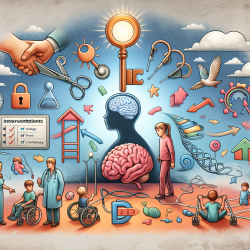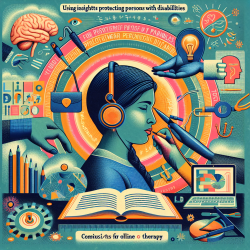Developmental Coordination Disorder (DCD) is a condition that affects motor coordination in children and can persist into adulthood. The recent international clinical practice recommendations provide a comprehensive guide for practitioners seeking to enhance their understanding and management of DCD. These guidelines, initiated by the European Academy of Childhood Disability (EACD), offer updated insights into the definition, diagnosis, assessment, intervention, and psychosocial aspects of DCD.
Understanding the Recommendations
The recommendations are based on extensive literature reviews and expert consensus. They address five key areas:
- Definition and Diagnosis: Clear criteria for identifying DCD, emphasizing the importance of a multi-disciplinary approach.
- Assessment: Updated tools and methods for evaluating motor skills and coordination in children.
- Intervention: Evidence-based strategies for therapy, including traditional activity-oriented interventions and innovative approaches like active video games.
- Psychosocial Aspects: Understanding the emotional and social challenges faced by individuals with DCD.
- Adolescents and Adults: For the first time, recommendations extend to older populations, recognizing that DCD can persist beyond childhood.
Implementing the Recommendations in Practice
The guidelines provide 35 detailed recommendations. Here’s how practitioners can implement them to improve their practice:
1. Comprehensive Assessment
The guidelines emphasize using standardized assessment tools to identify motor coordination issues accurately. Practitioners should familiarize themselves with tools like the Movement Assessment Battery for Children (MABC) and the Developmental Coordination Disorder Questionnaire (DCDQ).
2. Tailored Interventions
Interventions should be customized to each child’s needs. The recommendations highlight the efficacy of task-oriented interventions that focus on improving specific motor skills through repetitive practice. Additionally, incorporating active video games can make therapy engaging and effective.
3. Addressing Psychosocial Challenges
DCD often coexists with psychosocial issues such as low self-esteem and social anxiety. Practitioners should adopt a holistic approach that includes counseling and support for both children and their families.
4. Lifelong Support
The new focus on adolescents and adults underscores the need for ongoing support. Practitioners should develop long-term strategies that help individuals with DCD navigate challenges in education, employment, and daily living.
The Importance of Continued Research
The field of DCD is continually evolving. Practitioners are encouraged to stay updated with the latest research findings. Participating in conferences, webinars, and reading publications can provide valuable insights that enhance clinical practice.
The international clinical practice recommendations serve as a robust framework for understanding and managing DCD effectively. By integrating these guidelines into practice, practitioners can offer better support to individuals with DCD across their lifespan.










